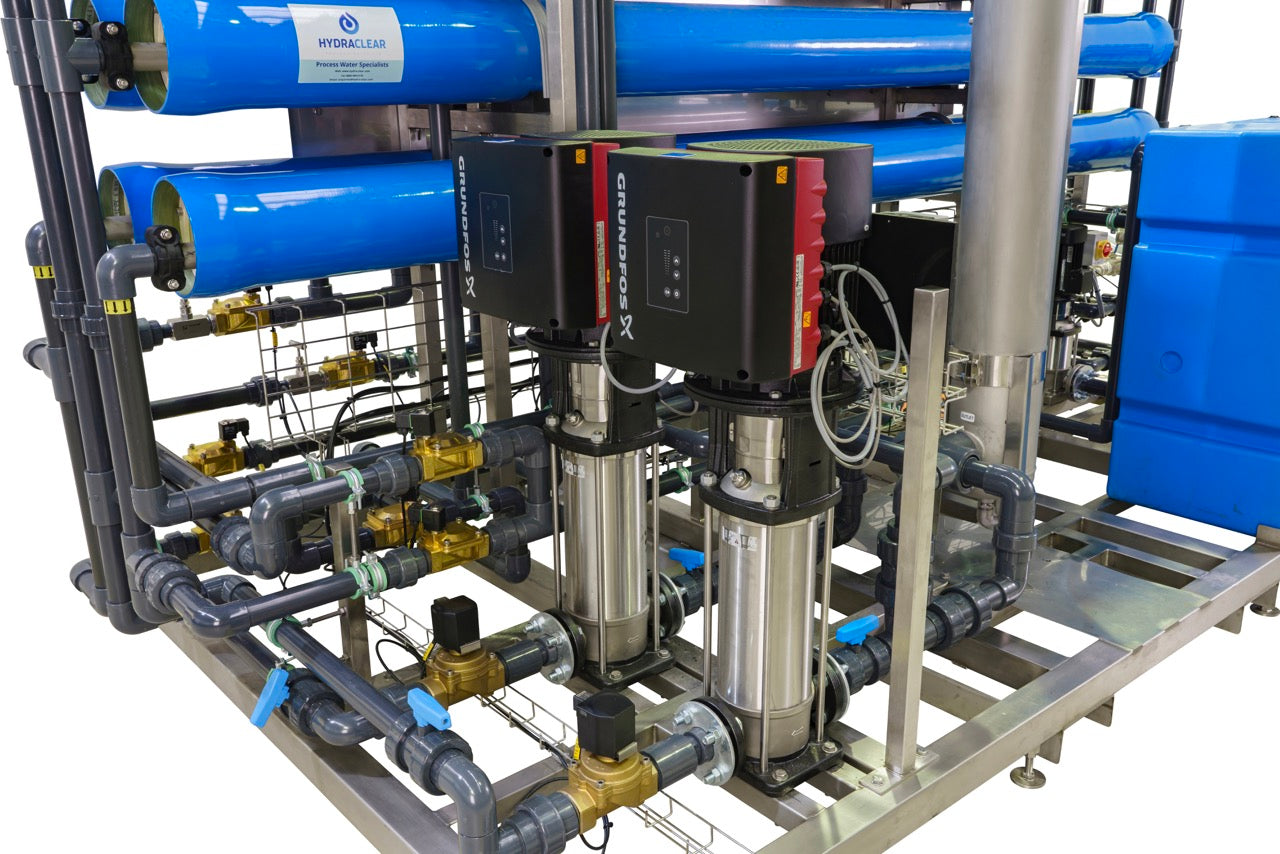What is Reverse Osmosis
Reverse osmosis is a pressure-driven filtration process that utilises a semi-permeable membrane to remove dissolved solids, organic compounds, and microorganisms from water. The process works by applying pressure to the feedwater, forcing it through the membrane, while contaminants are retained and flushed away.
This article delves into the profound benefits of Reverse Osmosis in industrial processes, highlighting its impact on efficiency, cost-effectiveness, and environmental sustainability.

How Reverse Osmosis Works
To better appreciate its benefits, let's briefly explore how RO operates:
1. Filtration Process
In RO, water is first subjected to a pre-filtration step to remove large particles, sediments, and debris. This step ensures that the stages that follow are more efficient.
2. High-Pressure Pump
The pre-filtered water is then pushed through the Reverse Osmosis Membrane by using a high-pressure pump. The pressure used is critical in overcoming natural osmotic pressure, allowing water molecules to pass through while impurities are retained.
3. Semi-Permeable Membrane
The semi-permeable membrane is at the heart of the Reverse Osmosis System. It acts as a barrier, allowing only pure water molecules to pass through while preventing contaminants such as dissolved solids, bacteria, and viruses from passing through.
4. Clean Water Collection
Clean, purified water is collected on the other side of the membrane for use in various industrial processes. This water is now free of contaminants and ready to be used for its intended purpose.
Benefits Of Reverse Osmosis In Industrial Processes
Environmental Benefits
One of the main environmental benefits of using a Reverse osmosis system is less hazardous wastewater. This is because the permeate (pure water) is produced without the use of any harmful chemicals.
With growing environmental concerns, industries are turning to RO as an environmentally friendly solution. RO helps industries in reducing their environmental footprint by reducing the need for chemical treatment and wastewater discharge.
Reverse osmosis is one of the most environmentally friendly industrial wastewater treatment methods.
Cost Benefits
Investing in RO technology can result in significant long-term cost savings. It reduces the need for costly chemical treatments and the costs associated with hazardous waste disposal.
Prices for acid and caustic solutions continue to rise, while reverse osmosis and membrane elements become less expensive.
The most expensive component of reverse-osmosis systems is electricity. Because modern Water Filtration Systems use little energy, their operating costs are low.
An RO system can be installed in a process and feed directly into the production line, or it can be fed into a holding tank for storage and then used as needed.
Health and Safety Benefits
RO provides a dependable source of clean water that is free of contaminants that could pose health risks in industries where employee health and safety are paramount. Reverse osmosis replaces traditional processes such as chemical treatment with smaller and more efficient equipment. This eliminates the competing risks of manual handling and the presence of hazardous chemicals on site, resulting in a safer working environment for personnel.
Maintenance Benefits
The RO system is maintenance friendly as it is a self-contained unit. It cleans itself and requires little operator intervention. Rather than being actively maintained, it only requires daily monitoring from on-site personnel. The membranes have a lifespan of 2-3 years, depending on factors such as feed water quality and quantity.
Hydra Clear can provide a comprehensive service and maintenance package, as well as a financing solution tailored to your needs.
Conclusion
Reverse Osmosis technology has revolutionised industrial processes by providing a dependable, cost-effective, and environmentally friendly water purification solution. Its numerous advantages, such as improved water purity, increased efficiency, and regulatory compliance, make it an indispensable tool in a variety of industries. As businesses strive for sustainability and efficiency, RO stands out as an expert in industrial water treatment.

